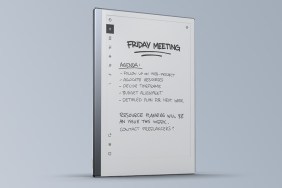Cid's outdone himself.
When I’m working my “regular” job and I feel the need for a background playlist, I turn on my “Work” list in iTunes. Ignoring a few assorted pop songs, the list is heavy with gaming music. Between the soundtracks of Chrono Trigger and various Persona titles, I’m pretty much covered, but I always find myself going back to one…
-
Over 200 Final Fantasy tracks (even Mystic Quest)
-
Almost all songs available at once
-
Easy to pick up and play
-
Maybe TOO easy, with any kind of experience
-
Unlocking characters is cool, but it's almost completely for show











